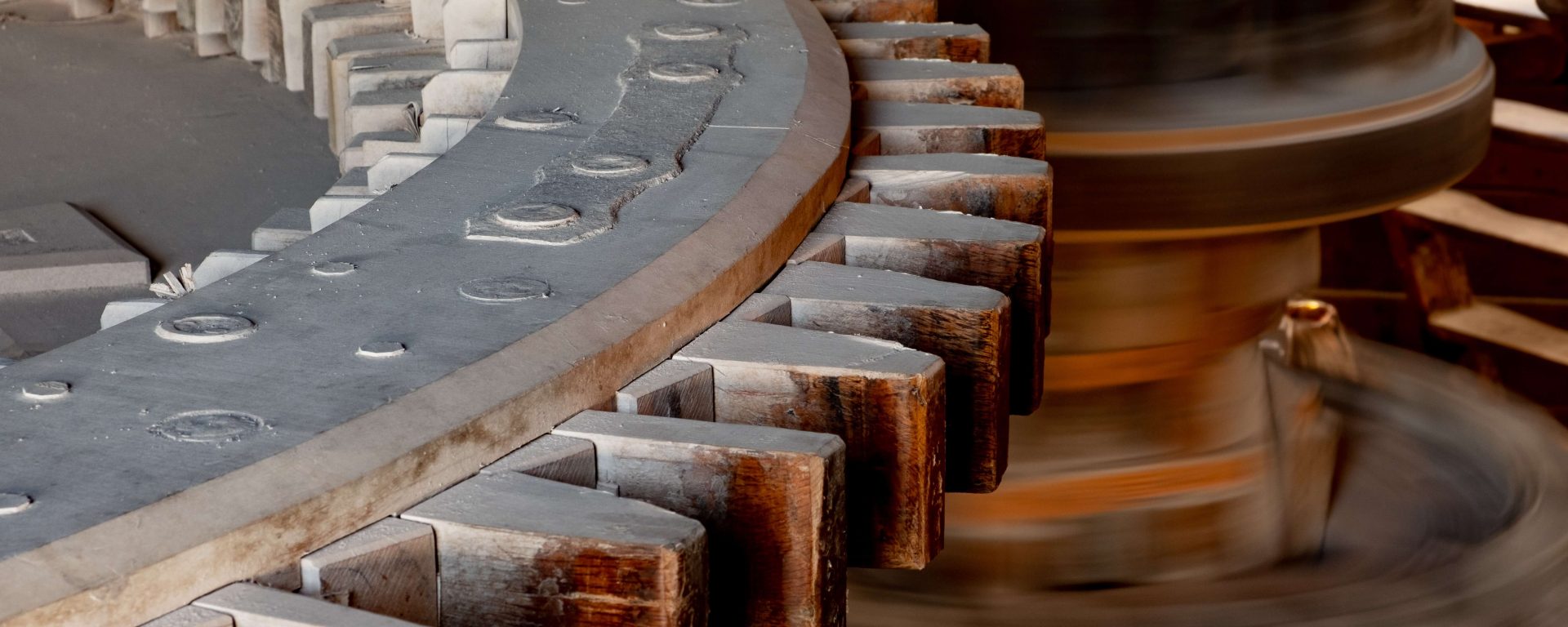Both mechanics and machinists are skilled trade workers who have a concentrated education and specialized training in their respective careers. Mechanics and machinists alike assemble and maintain varied types of machinery. Both professions require critical thinking skills, patience, attention to detail, and meticulous, hands-on work.
Although mechanics and machinists share similar qualities, the differences between these occupations are distinct. Read below to compare the mechanic vs. machinist career paths, job duties, education requirements, and earning potential.
Mechanic: Definition and Duties
A mechanic is a professional who builds, inspects, maintains, and repairs engines, machinery, and motors. A mechanic can also serve as a service technician, monitor inventory, and assemble mechanical components. Some mechanics specialize in a particular field like air conditioning or auto body mechanics.
Mechanics can also be divided into subgroups based on the type of machines they work with daily. For instance, some mechanics work on lightweight equipment like bicycle mechanisms, while others work on heavy-weight commercial machines like tractor-trailers.
Mechanics are responsible for:
- Accessing machinery or vehicles for maximum efficiency
- Adhering to safety policies and procedures
- Communicating any machinery or vehicle defects to customers
- Documenting work rendered and time spent
- Maintaining equipment and tools
- Providing routine inspection and maintenance procedures on machinery or vehicles
Mechanic: Education and Earnings
Mechanics are also called maintenance specialists and technicians. They are skilled workers certified by a trade association or local governmental authority, and usually work in a garage or shop. As tradespeople, mechanics typically hold a high school diploma, vocational training certificate, or an associate degree in their related field.
To succeed as a mechanic, applicants should have strong small motor skills and in-depth knowledge of mechanical diagnostic equipment and tools. Employers across several industries seek mechanics with excellent communication and customer service skills.
Salary ranges can vary depending on your training and specialty. As of 2020, the U.S. Bureau of Labor Statistics reported that the median pay for automotive mechanics was $44,050 per year, while the average annual earning for aviation mechanics was $66,680.
Machinist: Definition and Duties
A machinist is a tradesperson who creates and operates tools and machine apparatuses like drilling machines, grinders, lathes, as well as milling, polishing, and turning devices. A machinist also fabricates, modifies, and repairs mechanical objects. Machinists are typically hired for part repairs or to produce an entirely new part — shaping materials like ceramics, composites, metal (aluminum, brass, copper), plastic, glass, steel, or wood.
A machinist’s advanced manufacturing work can range from projects as simple as a car frame to something more complex like a commercial engine. You can find machinists using cutting-edge technology in machine shops and manufacturing sectors. Like mechanics, machinists can specialize in certain fields like computer numerical control (CNC) machinery.
Additional responsibilities of machinists include:
- Assessing and analyzing digital and technical drawings, also known as blueprints, specifying the precise parameters to produce selected parts
- Establishing the amount of material needed to be removed to fabricate a particular piece
- Programing high-tech machines to make parts with advanced manufacturing software
- Recognizing the proper processes and safety procedures required per project
- Inspecting finished products for exactness
- Using creative and analytical thinking skills to calculate, measure, and determine the most efficient way to cut a particular material into the pre-determined shape and size
Machinist: Education and Earnings
Specialized machinists can have additional titles, including fitters, grinders, mill hands, mold makers, operators, pattern makers, programmers, tool and die makers, and turning hands. Depending on their job title, the education requirements can vary. Generally, a machinist holds a high school diploma and has earned additional postsecondary credits in a machine-related certificate or associate degree program.
Although most machine parts today are mass-produced, machinists remain in demand to calibrate and install custom-made machine parts often required to manufacture various other elements. For instance, computer-aided design (CAD) and computer numerical-controlled (CNC) software are computer-driven programs operated by CNC machinists that cut excess material and create large quantities of cost-effective designs and shapes from machines.
A masterful machinist, therefore, should have advanced mechanical aptitude, measurement precision, a firm understanding of mathematic principles, and comprehension of applying proper power speeds and supply material commonly used in machining operations.
According to the Occupational Outlook Handbook, in 2020, machinists made an average of $47,040 per year, with the top ten percent of earners making more than $69,050 annually. Additionally, the machinist profession is projected to grow seven percent from 2020 to 2030, gaining 47,500 openings annually over the next decade.
A machinist is a rewarding profession, and modern workers are pivotal to revitalizing the manufacturing industry. Skilled students are needed to fill contemporary classrooms, hone their creative and calculated craft, and obtain a hands-on educational experience for future employment. Today, technical and career-focused programs provide practical training on state-of-the-art technology, to meet the influential trades of tomorrow.
Are you interested becoming a machinist? Click here to learn more about this innovative, advanced manufacturing career.
Goodwin University is a nonprofit institution of higher education and is accredited by the New England Commission of Higher Education (NECHE), formerly known as the New England Association of Schools and Colleges (NEASC). Goodwin University was founded in 1999, with the goal of serving a diverse student population with career-focused degree programs that lead to strong employment outcomes.

